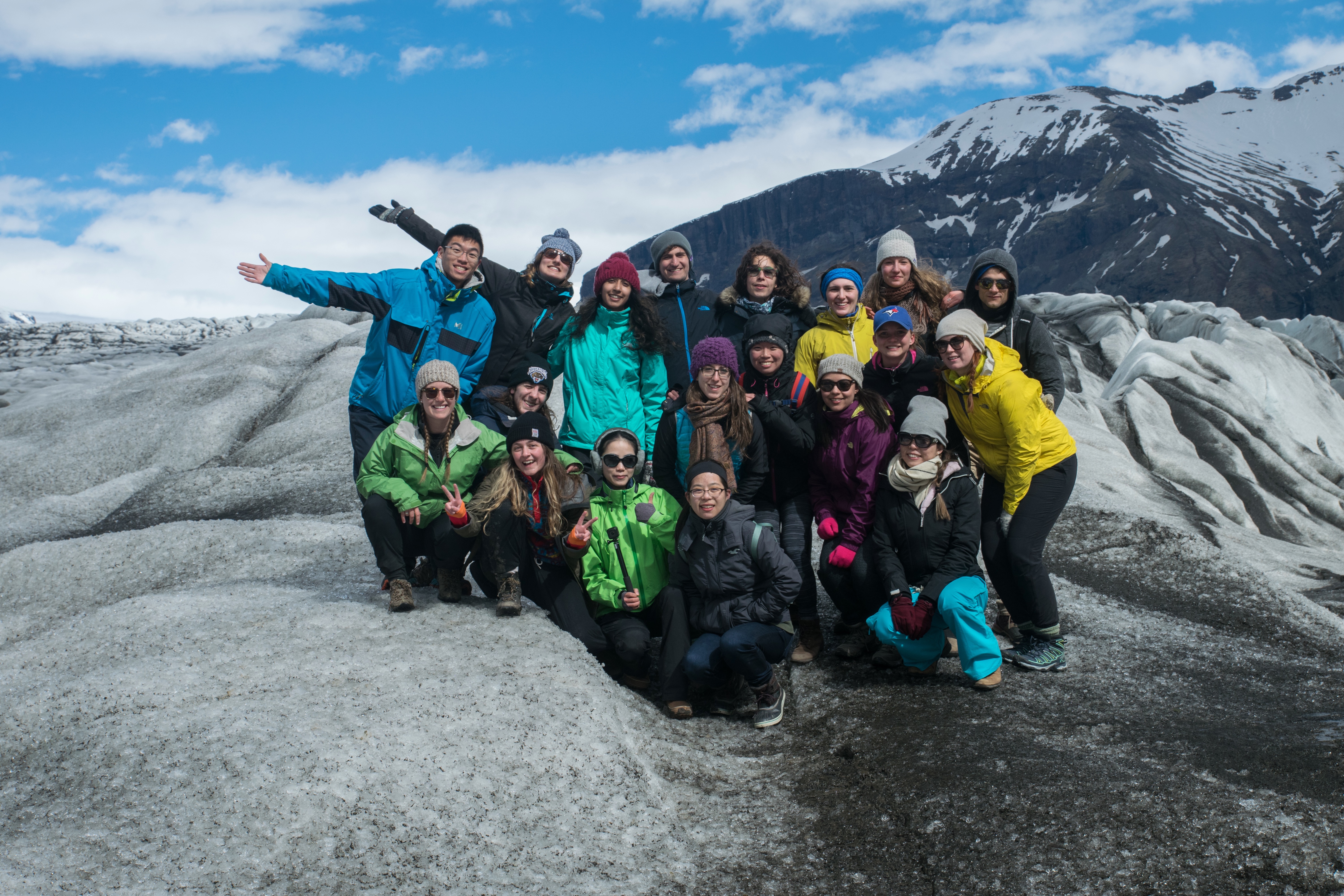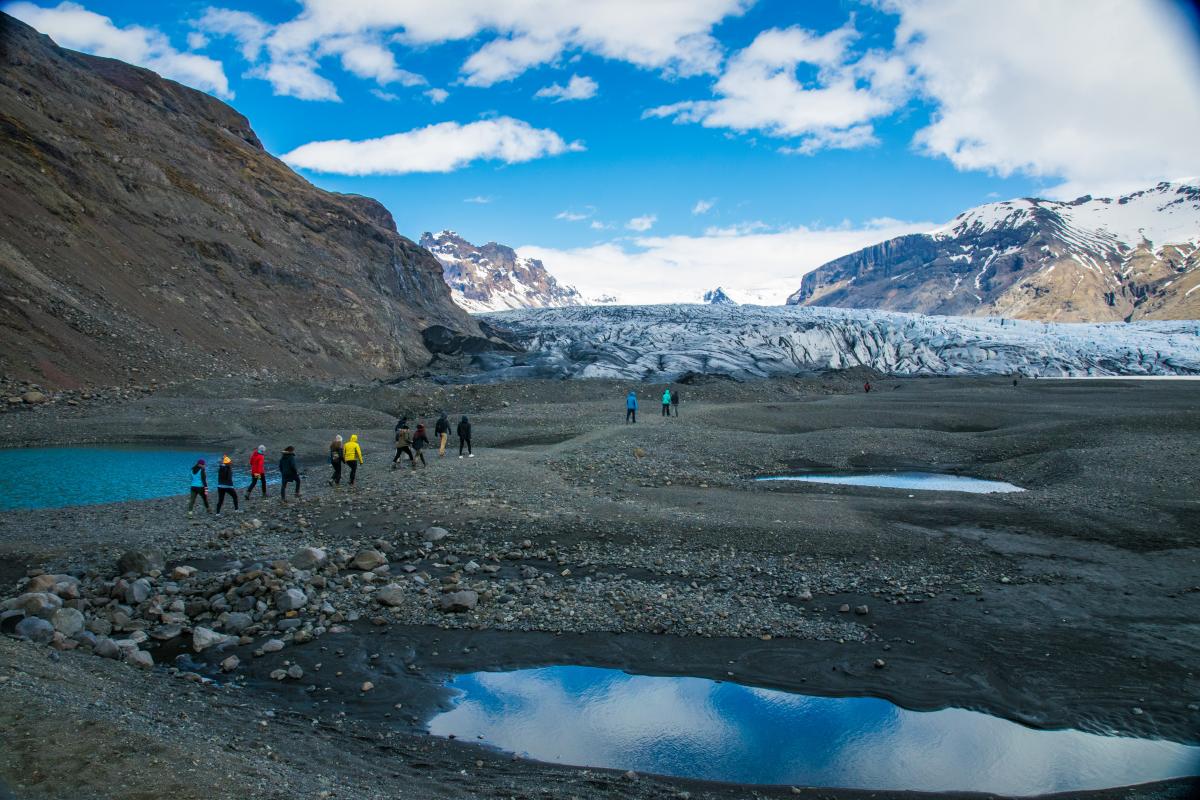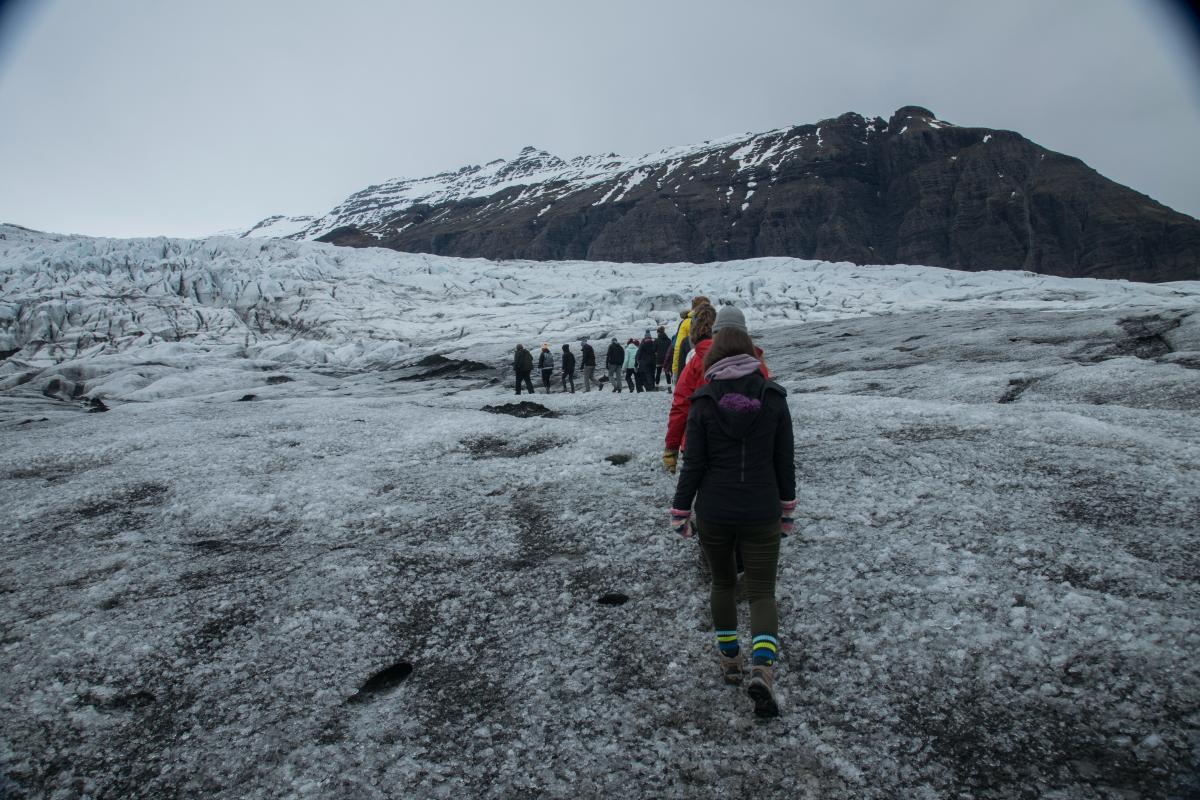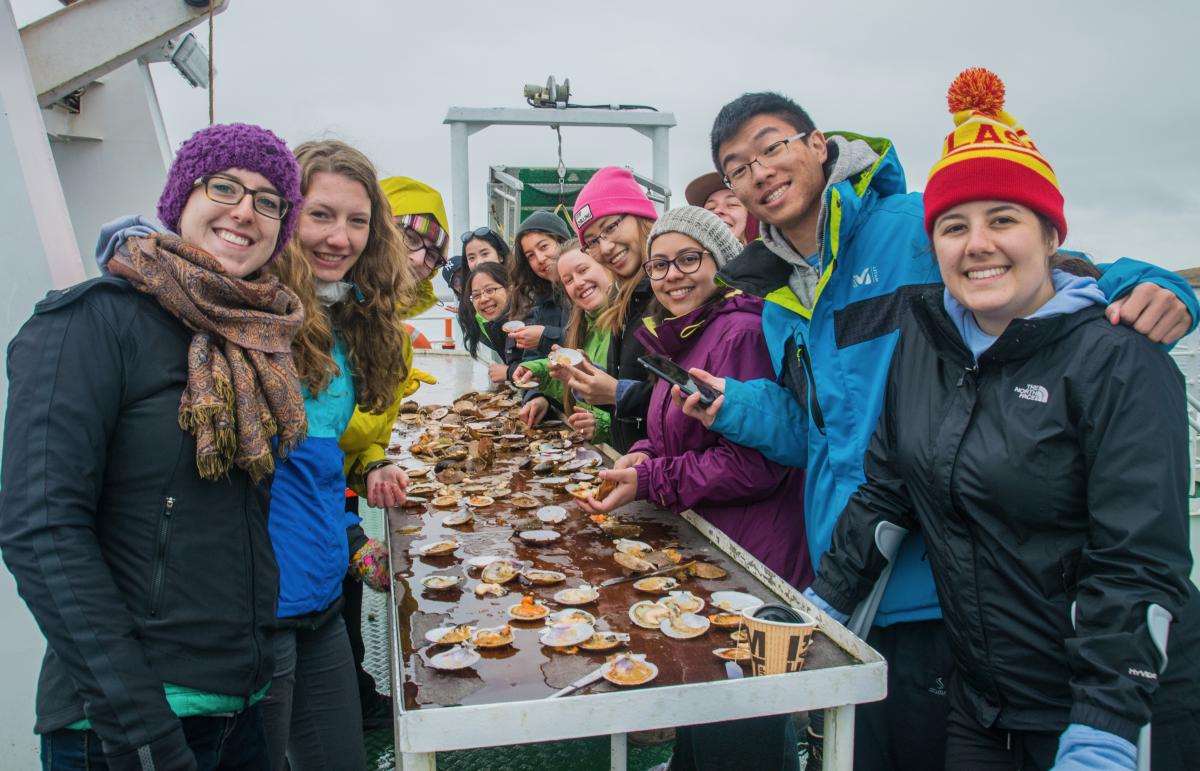
About the Course
For 2024S there will be two offerings of the course. One will be in-person (in Iceland) the other will be a virtual course.
Information about the ISCI 361-102 Virtual Course
Date: The course will run during Summer term 1. Students can register directly into the course on the SSC (no application necessary). There are no additional fees for this virtual course. ISCI 360 is a recommended pre-requisite.
Information about the ISCI 361-101 Field Course in Iceland
Leaders: This course is lead by faculty members Lee Groat and Denise Gabriel
Date: The course will run during Summer term 1. The in person session dates are May 1 - May 9, 2024
Information Session: Tuesday, November 21st 2023 at 11am on Zoom. See Go Global for link.
Deadline to Apply: December 5, 2023
Topic: The summer intensive course offers you an opportunity to experience Icelandic land, ecosystems, and communities first hand, and to hear the perspective from locals and local experts on contemporary and historical factors influencing (in this example) the Icelandic system.
Locations visited: Several locations through the country (more details below)

About the course
Contemporary scientists agree that solutions to complex global challenges such as environmental sustainability calls for “systems thinking”: the process of understanding how things influence one another within a whole. Systems thinking as an approach to problem-solving argues that the component parts of a system can best be understood in the context of relationships with each other and with other systems, rather than in isolation.
A scientific approach to examining the world that embraces systems thinking, therefore, demands that we consider landscapes, regions or whole continents as systems. In these systems, elements such as land, air, water, human societies, plants, and animals, interact in ways that influence the likelihood that the system will survive or perish.
This 3-credit summer intensive course builds on ISCI 360, in which you will get a chance to examine the complex interconnecting components that contribute to the nature and status of the present-day system of a country, a region or a city. We intend to begin with a study of Iceland (as a completely self-contained nation-state ‘system’, Iceland offers a particularly valuable case study).
Experience in the field
-
The summer intensive course offers you an opportunity to visit and experience Icelandic land, ecosystems, and communities first hand, and to hear the perspective from locals and local experts on contemporary and historical factors influencing (in this example) the Icelandic system.
-
In addition, the course will function as a data-gathering field trip to allow student teams to pursue a research project investigating the possible effects of perturbations of the Icelandic system.
A typical day in the program:
Attending lectures from selected local guest speakers on topics relevant to Iceland such as:
-
Climate change and Iceland.
-
The shrinking glaciers and the volcanoes underneath.
-
Flora and fauna (native and introduced).
-
Geneology and genetics.
-
Renewable energy in Iceland.
-
The debate over hydroelectricity and heavy industry.
-
Fisheries.
-
Whaling and whale watching.
-
The debate over reforestation.
-
Icelandic culture and history
-
Data gathering for students’ research projects
Locations visited:
- Reykjavik, the country's capital and largest city.
- The Reykanes Peninsula: the fishing industry, geothermal areas (Krýsuvík, Gunnuhver), extinctions (the Great Auk), Bridge Between Continents, geothermal power (the Blue Lagoon).
- The Golden Circle (Thingvellir National Park, Geysir, Gullfoss waterfall, Fridheimar Greenhouse, the Secret Lagoon).
- The Westmann Islands (Vestmannaeyjar): the 1973 eruption of Eldfell, puffins.
- The South Coast: LAVA Centre, Seljalandsfoss waterfall, Vík í Mýrdal, the Dyrhólaey peninsula (more puffins), Reynisfjara beach, Skaftafell
- Many other locations, most not accessible outside of this course.
Accommodation
The group will stay in various hostels around the country.
Eligibility requirements
General Global Seminar requirements
-
You must have at least a 70% average in your most recent Winter Session of full-time studies prior to application
-
You need to be a UBC student in good standing (e.g., not be under academic or non-academic discipline) to participate in a Global Seminar
-
You should have full-time student status (as defined by your faculty) in the year prior to your Global Seminar
-
You must maintain 70% average prior to your Global Seminar departure
-
You must have completed or intend to complete the necessary (or equivalent) pre-requisite courses prior to Global Seminar start date
-
Unclassified students will be considered on a case-by-case basis
-
You will need to be accepted by the Program Director leading the Global Seminar
To be accepted for this Global Seminar, you have to meet both program-specific requirements as well as Go Global’s general eligibility.
Program-specific requirements
This course is open to students with third-year or higher standing. All students can apply however priority is given to students in the Integrated Sciences specialization followed by students in the Faculty of Science.
Prerequisites
- Recommended prerequisite ISCI 360, Systems Approaches to Regional Sustainability (taking place in Term 1 of each academic year) or assigned readings.
- While the course is suitable for third-to fourth-year students from a variety of majors and science disciplines, preference will be given to students registered in Integrated Sciences.
How to apply
Application deadline
See Go Global website for deadlines
- Log in to the Gateway online application program
- Select “Search Experiences” and type "GSP" to explore Global Seminars programs
- Upload the application form for your selected Global Seminar – see Application documents below
*Please note that you can apply for up to a maximum of 2 Global Seminars*
Program fees and costs
Students are responsible for covering the cost of 3 credits of UBC tuition.
The final fee depends on the number of students in the program. The program fee covers accommodation, van rental, gas, approximately 2 group meals, activity fees/entrance fees.
Global Seminars refund policy
To withdraw from your program, you must contact Go Global by email to request a withdrawal. You will not be charged until you officially accept your spot in the program. Refunds cannot be issued after the program fee is charged to your SSC account.
In the case of withdrawal, Go Global Award funding must be returned in full.
If you have questions, please connect with your Go Global advisor or email Go Global at go.global@ubc.ca.
Pre-departure policy
Safety abroad
UBC is committed to preparing students for safe and successful international experiences. In order to achieve this, any student participating in a Go Global Program must complete the following:
- All UBC Student Safety Abroad requirements
- Go Global Program-specific pre-departure requirements
Failure to successfully complete these and any other requirements may result in withdrawal from the Go Global Program.
Accessibility
If you are considering applying for a Go Global program and identify with having a disability or pre-existing health condition (mental or physical) which could impact your participation, or if you require academic accommodations, you can contact the following offices and meet with an Accessibility Advisor before the start of the program:
- The Centre for Accessibility (Vancouver) 604 822-5844
- Disability Resource Centre (Okanagan) 250 807-8053
Contact
You can contact Go Global by email, phone, in-person or virtually through Zoom.


